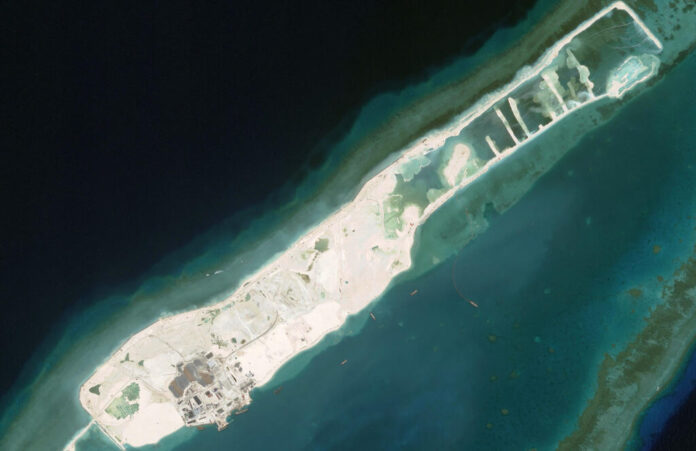[ad_1]
Vietnam has been busy. In latest months, it has exponentially expanded the dimensions of a number of options it controls within the Spratly Islands, together with Barque Canada Reef, Namyit Island, Pearson Reef, and Discovery Nice Reef. China seems to have allowed these growth efforts to happen largely unmolested. And but, elsewhere within the Spratlys at Second Thomas Shoal, Beijing is stopping the Philippines from supplying meals, water, and restricted constructing provides to the handful of Filipino personnel on the Sierra Madre, a Philippine Navy ship grounded on the shoal in 1999. Why have Chinese language leaders chosen to take such a tough line towards resupply efforts by the Philippines whereas allowing Vietnam’s large-scale island constructing at a number of close by options?
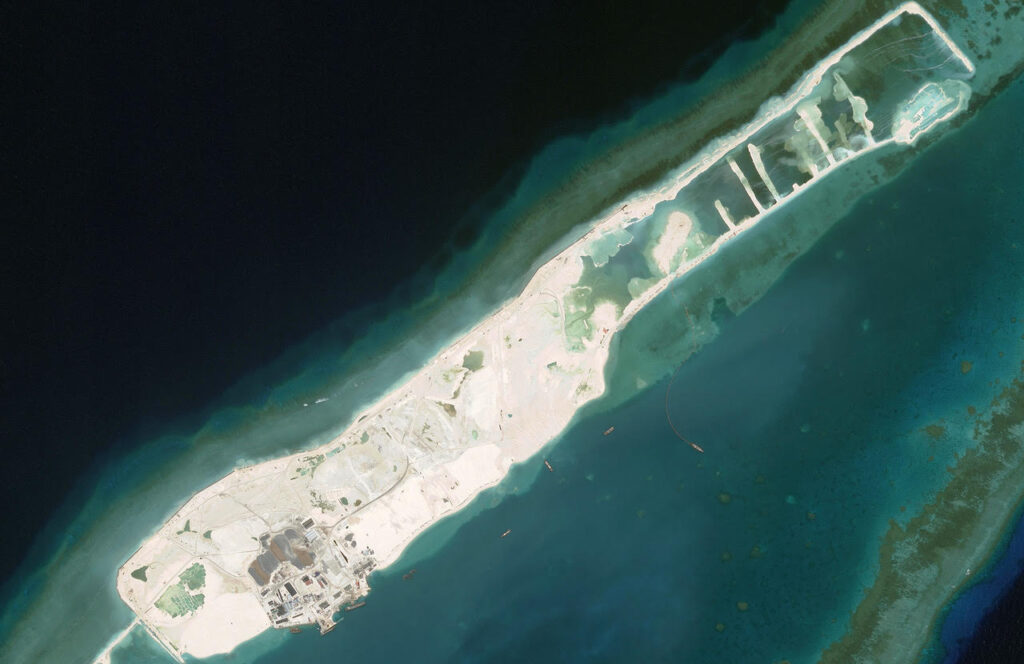
Vietnamese land reclamation at Barque Canada Reef (courtesy CSIS AMTI and Maxar 2024)
There are at the least 4 believable explanations for China’s conduct. First, Chinese language authorities might really feel that they’re already engaged in a wrestle with the Philippines within the South China Sea and wish to keep away from a second main standoff on the identical time. There’s precedent for this conduct. Previously, China typically prevented participating in coercion towards a number of neighbors on the identical time. Nonetheless, the alternative has additionally been true — for example, with China pushing onerous on South China Sea, East China Sea, and Himalayan disputes suddenly within the early years of Common Secretary Xi Jinping’s rule. Nonetheless, with appreciable issues at dwelling and overseas, maybe Beijing desires to keep away from the extra public criticism that it might provoke for concurrently utilizing drive towards a number of claimants. On this sense, Vietnam might need chosen the proper time to maneuver, when China was already busy round Second Thomas Shoal and Scarborough Shoal and subsequently hoping to keep away from different entanglements elsewhere within the Spratlys. This clarification could be a part of the puzzle, however it’s most compelling if China additionally believes that coercion towards Vietnam can be diplomatically damaging and unlikely to succeed.
That brings up the second chance: Leaders in Beijing might imagine that Vietnam is more likely than the Philippines to escalate if China contests its actions, making a disaster its leaders are not looking for. Non-public conversations with Chinese language officers and consultants recommend that many are satisfied the Philippines will buckle if Beijing applies sufficient stress. They cite China’s escalation dominance and a historical past of Philippine acquiescence to Chinese language stress, particularly throughout the earlier administration of Rodrigo Duterte. Chinese language speaking factors additionally constantly body the Philippines as missing company within the disputes, portray it as a mere dupe of america maneuvered into confrontation with Beijing. The present authorities in Manila subsequently has to show that it’s going to not fold to stress and that it’s the one calling the pictures, not the Individuals. Hanoi, alternatively, has nothing to show on that entrance given its historical past of accepting substantial threat to push again towards Beijing.
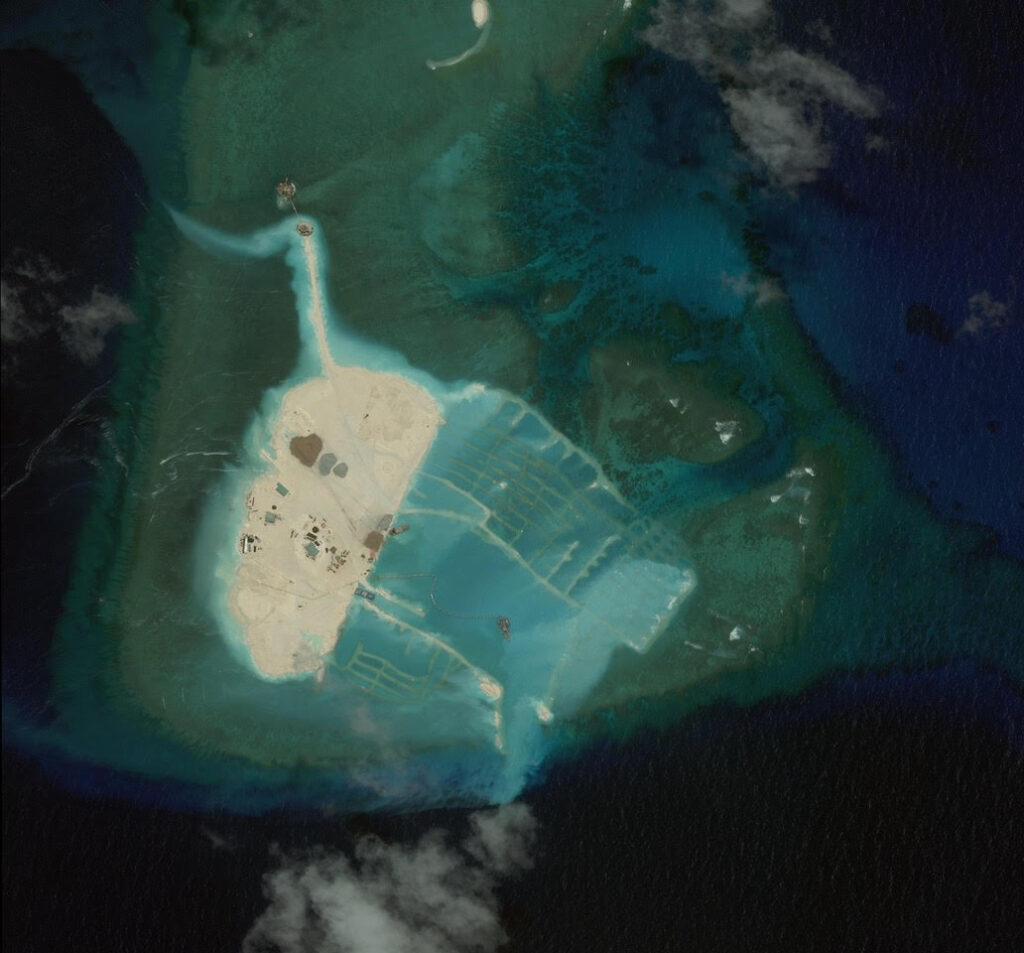
Vietnamese land reclamation at South Reef (courtesy CSIS AMTI and Maxar 2024)
As an illustration, Vietnam saved stress on China throughout a months-long standoff over a Chinese language oil rig in 2014 — together with after a Vietnamese fishing boat sank. Lengthy earlier than that, Vietnam confronted China’s first strikes into the Spratlys in 1988 by occupying greater than a dozen rocks and reefs to maintain them out of Beijing’s palms. That finally led to the temporary — and for Vietnam, bloody — Battle of Johnson Reef. And past the South China Sea, there was the Sino-Vietnam border battle of 1979, during which the surprising doggedness of Vietnamese resistance, and excessive casualties, pressured China’s navy into an early withdrawal. Cross-border hostilities continued for the higher a part of the subsequent decade. The few generals serving immediately in China’s navy with any fight expertise, like Central Army Fee members Zhang Youxia and Liu Zhenli, earned it combating Vietnamese troops. So Beijing possible is aware of that if Hanoi has determined this building is a navy necessity, it is not going to again right down to grey zone coercion and can settle for appreciable threat of escalation. That could be efficiently deterring China immediately.
Third, and relatedly, China could also be treating Vietnam in a different way than the Philippines because of the latter’s formal treaty alliance with america. The logic of allying with a stronger nation is that doing so ought to higher deter challenges from adversaries. However on this case, Vietnam might counterintuitively be benefitting by not being a U.S. treaty ally. In brief, Chinese language leaders might really feel that Vietnam’s land reclamation poses much less of a risk than even a lot smaller actions by the Philippines as a result of it’s unlikely that American forces would profit from them instantly. Though it’s unlikely that the small Philippine outpost at Second Thomas Shoal can be militarily helpful for U.S. forces, Chinese language leaders might fear extra about Manila’s actions because of the alliance. If that is true, then Hanoi’s nonalignment could possibly be a beautiful mannequin for different international locations looking for to guard their pursuits amid heightened U.S.-Chinese language competitors.
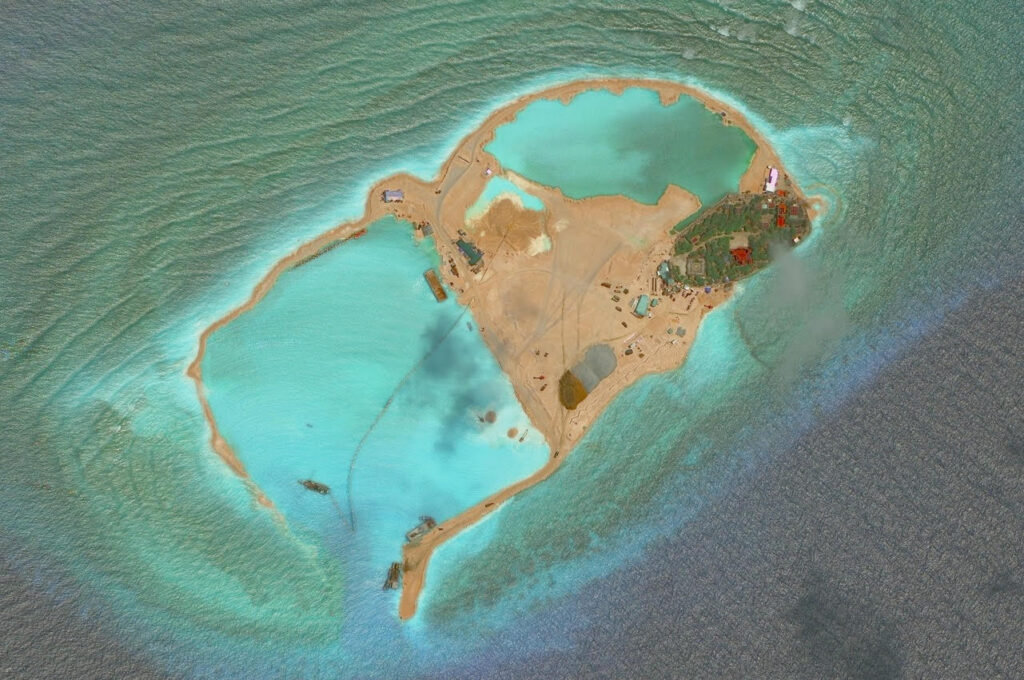
Vietnamese land reclamation at Central Reef (courtesy CSIS AMTI and Maxar 2024)
Fourth, Chinese language leaders could also be treating Vietnamese counterparts in a different way given the longstanding cooperative relationship between Beijing and Hanoi. The party-to-party hyperlinks between the 2 communist states stay sturdy, albeit extra distrustful than outsiders typically assume (see the historical past of battle above). Nonetheless, Chinese language officers could also be much less snug instigating a disaster with Vietnam at a time when it faces a lot stress from the world’s liberal democracies. The Vietnamese Communist Social gathering can be traditionally uncomfortable pursuing the type of public naming and shaming marketing campaign during which the Philippines is engaged. Hanoi prefers to speak extra quietly with Beijing whereas leaving it to outsiders (typically with quiet Vietnamese encouragement) to impose public stress. This has led to hypothesis that China is reacting extra harshly to Philippine actions than to these of Vietnam due to anger over Manila’s efforts to publicize Chinese language unhealthy conduct. That could be true, however it appears extra a contributing issue than a full clarification of Beijing’s conduct.
There are various different questions surrounding Vietnam’s actions. What prompted Vietnam to considerably increase its island constructing at this second? Did Hanoi count on that Beijing can be so restrained in response? And the way will U.S. and regional officers reply to Vietnam’s actions? To this point, most have demurred, with the spokesperson of the Philippine Coast Guard saying Manila doesn’t object to Vietnam’s island growth as a result of, in contrast to China, it has not been used to coerce different states. These are all vital questions, however understanding the logic behind China’s (lack of) response is very vital as a result of it would assist decipher Beijing’s response to future actions.
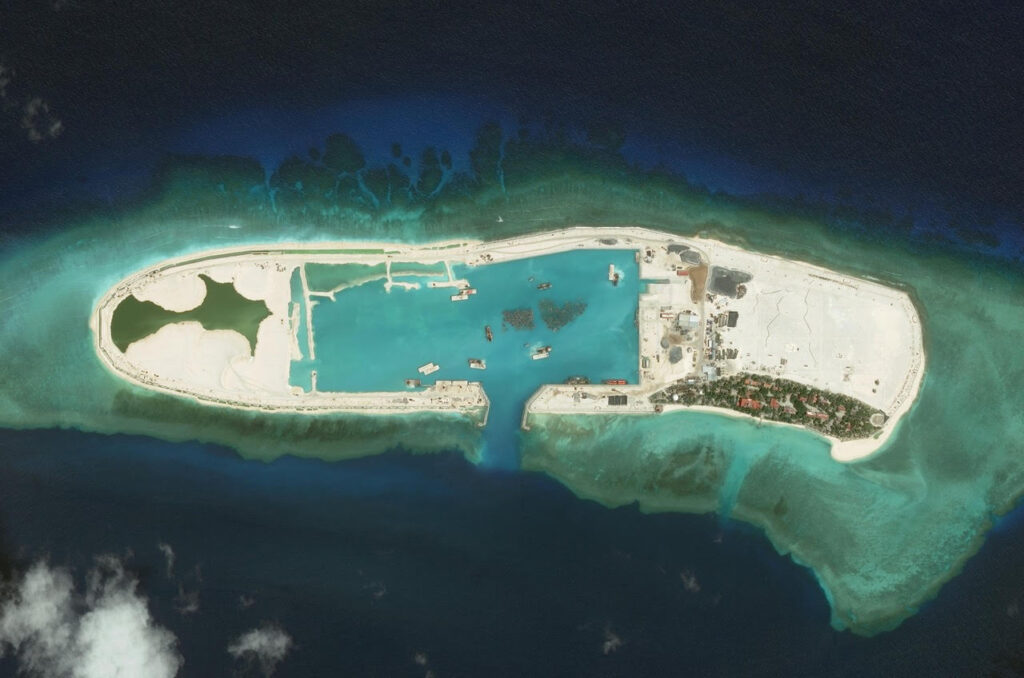
Vietnamese land reclamation at Namyit Island (courtesy CSIS AMTI and Maxar 2024)
In latest months, plenty of American and Chinese language consultants have asserted that the escalation dangers within the South China Sea are increased even than these within the Taiwan Strait. Certainly, if Beijing is making ready a navy response to Hanoi’s land reclamation, then this might set off a bloody battle akin to that which occurred within the Paracel Islands 50 years in the past. Conversely, if Chinese language leaders are content material to allow Vietnam’s large land reclamation within the South China Sea, then maybe they’re bluffing at Second Thomas Shoal and Philippine leaders want solely display clearly their willingness to escalate. These diametrically opposed conclusions can each be supported by present circumstances, since we have no idea what has pushed China’s muted response to Vietnam’s island constructing within the Spratlys. Deciphering Beijing’s logic ought to subsequently be a high precedence for each authorities officers and outdoors researchers, as it’ll present helpful classes concerning the probability of battle within the months and years forward.
Zack Cooper is a senior fellow on the American Enterprise Institute and co-host of the Internet Evaluation podcast for Battle on the Rocks.
Greg Poling directs the Southeast Asia Program and Asia Maritime Transparency Initiative on the Heart for Strategic and Worldwide Research and is the creator of On Harmful Floor: America’s Century within the South China Sea.
Picture: Vietnamese Authorities
[ad_2]


